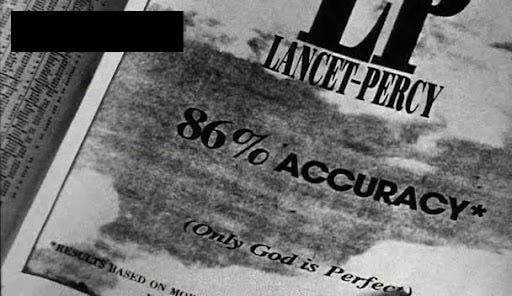the map is of the territory
Introduction
Over the past week or so, I’ve been turning over the relationships between a set of common, historically-recurring concepts dear to our collective hearts. This is an attempt to systematize some of these ideas, which are not entirely our own but recurrent from the time of the ancients, and connect them in a common mode of understanding.1
I don’t claim any particular competence or familiarity with formal philosophy and I expect that (1) none of the notions I present below are truly original, except perhaps in the invention of novel errors; and (2) further they have probably already been thoroughly dissected and rebutted elsewhere. Nevertheless I lay them out for your consideration. Perhaps they will be new or useful to you.
To begin, I will describe a way of understanding some basic relationships between humans and the material and immaterial worlds they live between. Subsequent essays will explore the implications of this model of the world.
That’s Why You’re Not An Intellectual
Before I lay out my ontology, I want to examine a few select modes of understanding the relationship between the transcendent and the mundane. This is not a competent treatment and is in various places oversimplified, wrong, or deliberately misleading. Good luck guessing which parts are which!
If you want to skip this section and just read what I think without reference to antecedents, well, by all means.
Platonic Forms
Our journey begins in Athens; for like many before me, I have found myself beefing with Plato.
Plato’s conception of reality is conveyed in his theory of Forms. Summarizing, he imagines two worlds: a world of substance, and a higher world of ideas. The world of Forms, or Ideas, is the true world. The world of Substance is the world of shadows on the wall, imperfectly imitating the higher and pristine Ideals. Those things we see in our lives are projections of the true and eternal. Knowledge of the Forms sets one free if one is willing and strong enough to seek it.
This is a cautionary tale about what happens when you learn too much math.
Map and Territory
Unceremoniously stolen from Alfred Korzybski, a central tenet of Internet rationalism was:
The map is not the territory.
The meaning of this aphorism is straightforward: we may imagine a means of understanding the mundane world, or a part of it; but we should not mistake this story for the truth: we should not believe everything we think.
Statistician George Box is given credit for an alternative framing of the same idea:
All models are wrong; some models are useful.
Any understanding of the mundane world that we develop necessarily involves dimension reduction and simplification: so the story goes. We may end up with a tractable model that predicts reasonably well, but we’ll never get our error term to zero, and we mustn’t confuse our toy conceptions for a high-fidelity reproduction of “reality.”
Observe that this strand of 20th Century thinking is an inversion of Plato: the forms are imperfect; the shadows on the wall are our best attempt as fallen creatures to understand the Divine Creation that is experienced directly with our senses and given to us by God. In a sense, it’s quite Abrahamic.2
Even as they elevate and denigrate one or the other, however, the modern empiricists and Plato share alike the metaphysical separation of the world of Ideas and the world of Substance.
Folk Models
Since the dawn of time man has distinguished between the profane and sacred worlds. Frequently the sacred realm was divided into Heaven and Hell: not as places of punishment or reward, but as the residences of benevolent or hostile spirits. Shamans and heroes might venture into the dream realm and return, Promethean, with knowledge or power; or they might return changed and cursed, or not return at all. Socially-sanctioned priests connected with the higher realms to bless the people and unsanctioned priests channeled the power of the Hells.
Thomas Kuhn’s sociological model of science fits into the folk tradition. It breaks with both empiricists and idealists by elevating humans who mediate between worlds. Knowledge is not only ideal or only an imitation of substance; it is first and foremost a human endeavor and must be understood through the lens of the ones who wrest knowledge from the Gods.
The Nature of the Mind
A final related matter: is the mind—not the brain, the mind—best understood as belonging to the world of Ideas or the world of Substance? I’ll skip premodern ancient philosophers here and instead start with Descartes.
Dualism of the form attributed to Descartes casually separates the mind from the physical world. Perhaps our mind inhabits our body, but it is of another kind.3 Since his time, a number of other positions have emerged.
In starkest contrast to Descartes is reductive physical monism, which holds that minds are simply physical and not deserving of special treatment. This view is popular among crass materialists.
A sort of third way of handling the mind-body problem is the notion of emergent materialism. Here, minds are physically-grounded, but have interesting properties and modes of operation that emerge from physical features even as they are constrained by the physical. That is, mental constructs are part of the same world as a rock, but possess some interesting features that rocks don’t have, and may be regarded separately for some purposes.
Placing My Model
The ontology I am about to propose falls somewhere between these predecessors.
I am an emergent materialist when discussing the nature of the mind.
I sit between but apart from Plato and Korzybski by emphasizing the continuity of the world of Ideas from the world of Substance; here too I am an emergent materialist.
I am also with the Folk/Kuhnean perspective in that I believe ethereal spirits are continuously manipulating the world of Substance via human mediators.
An Escherian Ontology
Two Worlds and a Bridge Between
Consider what you see and feel around you. Consider your considerations. Consider yourself. These are the components of my cosmos.
First, the material world; the immanent; the given; the territory. That which can be perceived with the senses; the world of substance.
Second, the Immaterium; the transcendent; the spirit realm; the space of maps. Those things that can be imagined.
Finally: the girl reading this. You: the Mapper.
Ok?
Territory; Mapper; Map.
The Mapper is of the Territory. The Map is of the Territory. The Mapper creates and propagates Maps in the Territory; the Map reshapes the Mapper and the Mapper reshapes the Map, and in so doing each reshapes the Territory. The Territory contains Map and Mapper, sustains them, inspires them.
Cool. So, None of That Makes Any Sense Actually,
You exist in a world.
You are composed of that world’s substance; this is your physical self.
You are also, partly, composed of ideas. Your beliefs, your values, your memories, your dreams, your stories: these are part of you as much as your beating heart.
Ideas are imprinted on substance just like you are, but each of you are also more than that substance.
When you encounter a new idea, you change, and so the world changes. When you share an idea with another, they change. When you create a new idea, you restructure the ecological space of ideas itself. At each of these steps, the material world has changed, because ideas and people are part of the world. And when your ideas change so too does your experience of the world.


So what?
I am proposing that it can be helpful to think of Ideas as occupying a space that exists alongside the purely physical world with which we’re all familiar, and that further it is useful to think of this parallel emergent world as extremely real and not at all a metaphor.
I am suggesting that some of the denizens of this world are non-metaphorically alive.
I am telling you that they seep across the border between the transcendent and the material using you as a portal and sometimes as a host.
I am warning you that you can literally be devoured by demons if you’re not careful.
I am reassuring you that you are not helpless against these powers.
I am affirming that you have write access to the realm of the Gods.
Well That’s Obviously Insane. Anyway What’s The Point of This
I reject the crass reductive materialism of Yudkowsky and many others. The spiritual is real, actually, and it should be taken more seriously than it is. We can give it better grounding and appropriate respect in a framework that can be appreciated even by rationalists.
Second, I want to fortify the role of humans in shaping our own story. The twentieth century in particular was an age of Machines and States and Systems that ran roughshod over humanity; but that age is dying. The dawning epoch will be an age of spirits and demons of new kinds: a time of portent and prodigy. Perhaps we can better preserve ourselves in the face of a new onslaught if we forearm ourselves against novel dehumanizing actors from across the veil, against horrors beyond our comprehension.
Maybe it’s not too late! Maybe this time will be different.
I generally oppose eternalist systemization but I think it may be helpful to at least develop a new framework or vantage point and see what claims fall out of it.
In another sense it’s extremely anti-Augustinian. Mother Church was large enough to contain even Platonists, I guess.
The divorce of the spirit from the physical was undermined by subsequent developments, most notably a high-velocity tamping iron, but in practice I suspect it remains the dominant tacit understanding of the world among the educated classes in daily life.







It's interesting to think of the realm of ideas as a seperate plane which intersects our physical one in each of our minds. The space that contains all ideas is likely infinite, as is the number of possible ideas, but there are only so many thinkers in the universe to contain them. In this way conscious beings are a choke point through which ideas must flow in order to be realized in the material world or transmitted to someone else. As an engineer I spend lots of time talking with clients who have become possessed by an idea, and who cannot implement it themselves, and thus turn to transmission in order to see it realized.
-Connor, OfAllTrades
Well done! I have been exploring similar ideas very seriously in the past couple of months and then you popped up with this amazing elucidation. Synchronicity? Mb not. Thank you!